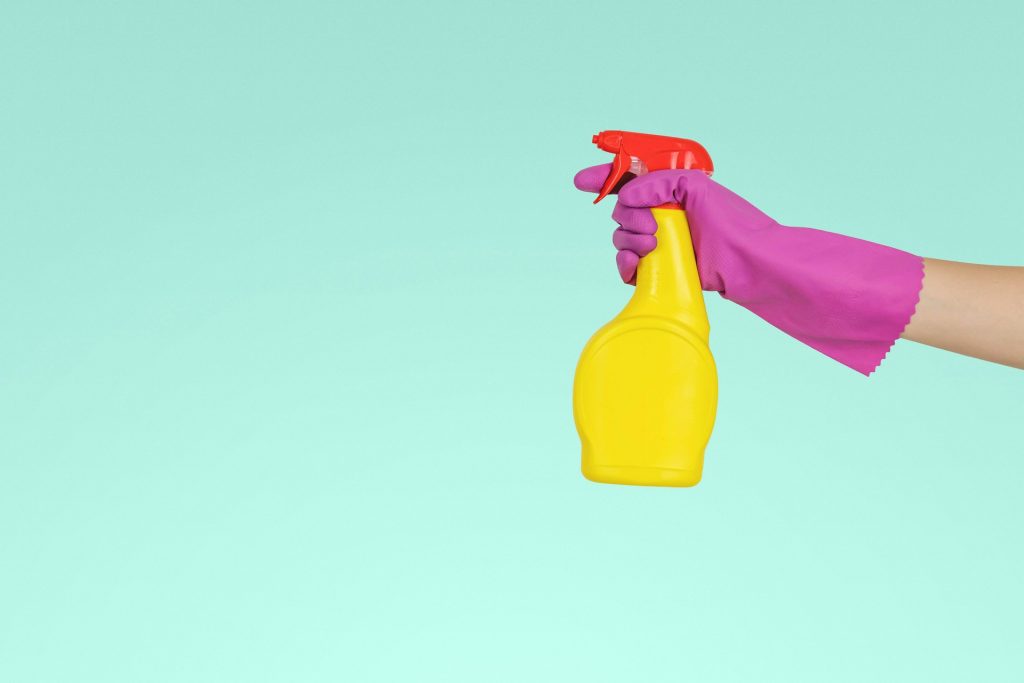What Is Sanitizing?
Sanitizing is a vital cleaning process aimed at reducing the number of bacteria on surfaces to a safe level, as determined by public health standards. While it does not necessarily kill or destroy bacteria, it effectively lowers their presence, minimizing the risk of contamination and transmission. In commercial settings, the sanitation process is particularly crucial around food preparation areas to ensure that surfaces remain clean and safe for food handling.What Is Disinfecting?
Disinfecting involves the use of chemical agents known as disinfectants, which are capable of killing both bacteria and germs. Unlike sanitizing, disinfecting aims to eliminate or inactivate a broader range of microorganisms, including viruses. Disinfectants are the most reliable way to halt the spread of infectious bacteria and are essential for maintaining a hygienic environment. However, when used around food, it is imperative to ensure that the disinfectants contain food-safe chemicals to prevent any potential health hazards.Key Differences Between Sanitization And Disinfection In Commercial Settings
While both sanitizing and disinfecting are essential processes in maintaining a clean and hygienic commercial setting, there are some key differences between the two methods.Target Microorganism
Sanitizers and disinfectants are designed to address microorganisms but they interact with them differently. Sanitizers can reduce some microorganisms, and while they may have the ability to kill certain bacteria, they cannot effectively eliminate all pathogens as disinfectants can. Conversely, disinfectants are formulated to vanquish a broader spectrum of microorganisms, including bacteria, viruses, and fungi. Commercial settings, such as hospitals and restaurants, may require a combination of both sanitizing and disinfecting to maintain optimal standards of cleanliness.Level Of Effectiveness
The effectiveness of sanitizing and disinfecting depends on various factors, such as the type and concentration of chemicals used, contact time, and application method. Sanitizers are generally less potent than disinfectants, as they aim to reduce bacteria instead of eliminating them entirely. As such, they require a shorter contact time to achieve their intended purpose. Disinfectants, on the other hand, require a longer contact time to kill or inactivate all targeted microorganisms.Chemicals Involved
The chemicals utilized in sanitization and disinfection processes differ based on their intended purpose. Sanitizers generally contain milder chemicals like alcohol, hydrogen peroxide, and quaternary ammonium compounds, which are safe for use and do not require rinsing. Conversely, disinfectants may contain stronger chemicals like bleach, ammonia, or phenol, which have a broader spectrum of action but also pose potential health hazards if not used correctly. Disinfectants require thorough rinsing after use, especially in food preparation areas.Regulator bodies:
In commercial settings, public health authorities heavily regulate sanitizers and disinfectants to ensure their safety and effectiveness. In the United States, the Environmental Protection Agency (EPA) regulates and approves all sanitizing and disinfecting products used in commercial settings. However, some sanitizers, like hand sanitizer, may also be regulated by the Food and Drug Administration (FDA). The EPA labels each approved disinfectant with a registration number and specifies which microorganisms it can eliminate. Additionally, commercial establishments are required to follow specific guidelines set forth by these agencies to ensure proper use and application of sanitizers and disinfectants.When To Use A Sanitizer And Disinfectant Cleaner
Sanitizers play a crucial role in maintaining cleanliness and safety, particularly in settings where surfaces or objects come into contact with food. Their ability to reduce the number of microorganisms makes them essential for use in the food industry, restaurants, kitchens, and other areas where food preparation and handling occur. Additionally, sanitizers are suitable for routine tasks in various settings, including medical facilities, schools, and offices. On the other hand, disinfectants are employed where a higher level of microbial control is necessary, such as in healthcare facilities, laboratories, and environments prone to high contamination. Their potent action against a broader spectrum of microorganisms makes them indispensable for combating infectious agents and ensuring a hygienic environment in these high-risk areas. Regulatory authorities often provide industry-specific guidelines that mandate the use of sanitizers or disinfectants based on their efficacy and the unique requirements of different sectors. This ensures that the appropriate product is used to meet specific cleanliness and safety standards in various environments. In essence, sanitizers find frequent use in everyday scenarios to maintain cleanliness, while disinfectants are utilized periodically in response to specific situations, outbreaks, or as a preventive measure in high-risk environments, where a higher level of microbial control is crucial.Sanitize Vs. Disinfect: Which Is The Best For Commercial Cleaning?
Ultimately, both sanitizing and disinfecting are vital processes for maintaining a clean and safe commercial environment. Depending on the unique needs and requirements of each setting, one may be more suitable than the other. In food preparation areas, for example, where routine cleaning is required to maintain safety standards, sanitizers would be the preferred method. However, in high-risk environments like hospitals or laboratories, where more potent and thorough microbial control is essential, disinfectants would be the ideal choice. It’s crucial to emphasize the importance of reading product labels and following instructions meticulously when using sanitizers and disinfectants in commercial cleaning. Product labels provide vital information about the active ingredients, the types of bacteria and viruses the product eliminates, safety precautions, and the contact time required for effective microorganism elimination. Adhering to these guidelines is crucial to ensuring the optimal efficacy and safe application of these products in commercial cleaning settings. Improper use can lead to ineffective sanitization or disinfection, potentially posing health risks to individuals. Therefore, careful attention to product instructions and guidelines is paramount to achieving successful and safe commercial cleaning outcomes.Get The Best Commercial Disinfectant Cleaning Services
Maintaining a clean and hygienic commercial setting is imperative for health and infection prevention. In this context, sanitization focuses on reducing bacteria to safe levels, while disinfection goes further, eliminating a broader range of microorganisms. Though there are many differences between sanitizing and disinfecting, they both play a vital role in keeping our surroundings clean and safe. In the case of a commercial setting, both are equally important, and depending on the unique needs of each environment, one may be more suitable than the other. In high-risk environments like healthcare facilities, disinfection is crucial, whereas sanitization suits routine tasks. Professional disinfectant cleaning services are recommended for optimal results, especially in areas with elevated contamination risks. Investing in professional cleaning services ensures proactive cleanliness and hygiene standards in today’s health-conscious climate.FAQs
Sanitization and disinfection are interrelated processes but they have different functions. Sanitization reduces the number of bacteria, while disinfection eliminates and kills a border range of pathogens, which includes viruses and fungi.
It is of vital importance to use the right product for the required purpose. Sanitizers are mild and can easily reduce bacteria but disinfectants are potent and can be effective against a wider spectrum of pathogens.
Sanitizers typically contain milder chemicals, while disinfectants are designed to be more powerful and contain chemicals like bleach or ammonium compounds.
Always follow the instructions of the manufacturer to ensure the proper effectiveness of the product. However, it is not recommended as it can affect the efficiency of the product.
Yes, you can sanitize or disinfect electronic devices but you must use a product that is compatible with your devices and not cause them damage.




